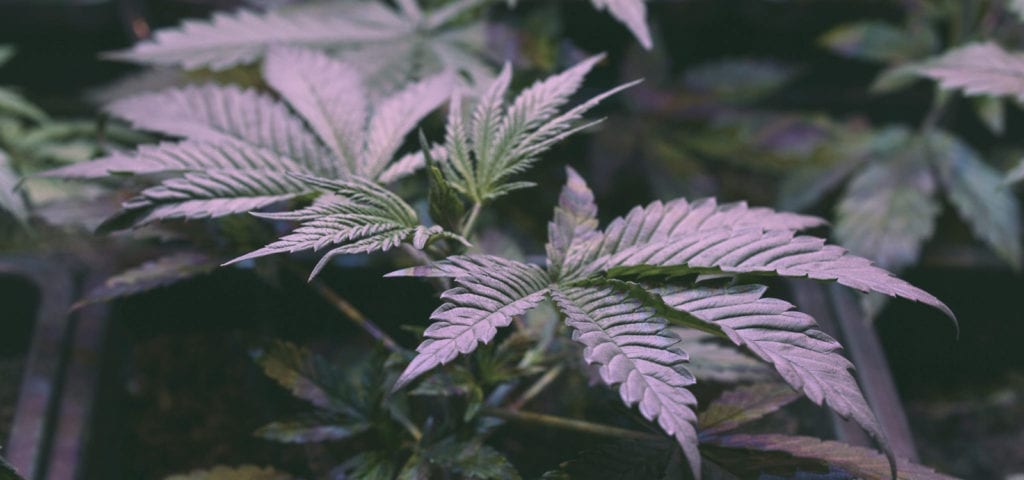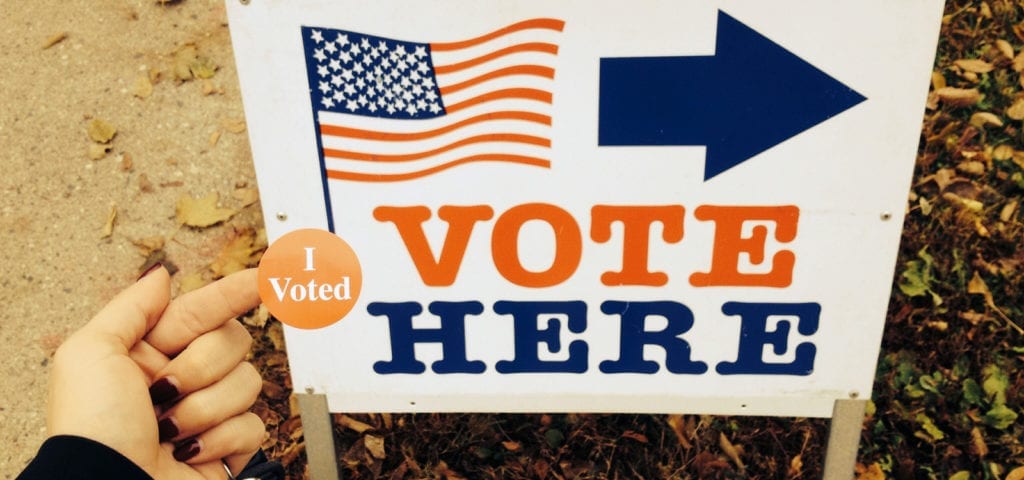Jon Vaught is the CEO of Front Range Biosciences, a cannabis agriculture firm based out of Boulder, Colorado that specializes in tissue culture cloning for the cannabis industry.
Jon recently joined our podcast host TG Branfalt for an interview that covers his early career in organic chemistry and agriculture science, Front Range’s successful seed round of investments, how the company is revolutionizing cloning methods for the cannabis industry with tissue culture technology, the regulatory and logistical challenges they have faced along the way, and more!
Tune in to this week’s Ganjapreneur.com podcast episode below, or scroll down to read a full transcript of the interview.
Listen to the podcast:
Read the transcript:
TG Branfalt: Hey there. I’m your host, TG Branfalt and you are listening to the Ganjapreneur.com Podcast where we try to bring you actionable information and normalize cannabis through the stories of ganjapreneurs, activists, and industry stakeholders. Today I’m delighted to be joined by Dr. Jon Vaught. He is the CEO of Front Range Biosciences. You guys are doing some crazy stuff. How you doing today, Jon?
Jon Vaught: I’m good, thank you, Tim. How are you doing?
TG Branfalt: I’m great. I’m real excited to get at the meat of what you and your company does, but before that I want to know about you, man. What’s your background? How’d you get started in this space?
Jon Vaught: Yeah sure. So I, actually I grew up in North Carolina and I did my BS in Chemistry at North Carolina State and my PhD in Organic Chemistry at the University of Colorado at Boulder, so I’m a hardcore organic chemist is my background. I actually started my career in molecular diagnostics while I was in graduate school and I worked for a startup company here in Boulder, Colorado called SomaLogic. We were working on using the human protiome to better understand chronic illness, things like cancer, heart disease, inflammation and other chronic illnesses like that.
We worked with some big pharma companies, some big diagnostic companies, and developed the world’s largest proteomic biomarker discovery platform. We would just look at a group of proteins in blood and then use it to predict disease outcomes. I spent about five and a half years doing that and then I went to another startup company in the molecular diagnostic space. That company by the way, we grew to over, when I started it was a little less than 20 people and we grew to over 120 while I was there. Today they’re over 200 and into the tens of millions in revenue.
Then I went to a company called Beacon Biotechnology for food safety. They brought me on to develop a pathogen detection platform for food processing. So this was detecting bugs that make people sick, things like salmonella, E.Coli, listeria and building a molecular test that would allow large food processors to test this on the factory floor in a large scale. After a couple years there, I went to help my former PhD advisor Bruce Eaton start another molecular diagnostics company called Velocity Sciences and that was back on the human side.
I spent about two years getting that company off the ground with him. We were doing similar work to what we did at SomaLogic, working with several companies around drug development and better understanding certain pathways and disease and then building new technologies to help them do diagnostic tests. That’s when I really was starting to pay attention to the cannabis industry. I’d always been fascinated. It was actually my original inspiration for organic chemistry was what nature does with plants and a lot of the interesting compounds that are produced in plants, and so that’s kind of what sparked my interest.
So as the cannabis industry became legal here in Colorado, I began to look at it more seriously as a way that I could begin to actually take some of my formal training and apply it to this emerging industry. So originally started thinking about spinning up a division within that company and realized the corporate and regulatory constraints were too severe for what we could do within that company, so I decided to spin out one and that was the birth of Front Range Biosciences a little over two years ago.
Yeah, that’s kind of how I got into the cannabis space and I went very quickly from analytical testing and formulation type work to looking at agricultural technology, just seeing there was a huge need from growers to get access to the tools that had been developed for other farmers and other crops that they just hadn’t had access to due to prohibition. That was kind of became the foundation for Front Range and how we got started.
TG Branfalt: Then you bring Front Range, you end up in the CanopyBoulder Accelerator of some really great stuff has come out of this, and so tell me about your experience with CanopyBoulder. How did that program help get you off the ground and what did you learn from participating in the accelerator?
Jon Vaught: It was a great experience. One of our other co-founders, Nick Hofmeister, who’s our COO, he had actually been a mentor at CanopyBoulder for at least a year or so. He was also a mentor at TechStars. He’s definitely the business brains of our company. I have some of that, but not as much as he does. He’s got an MBA from MIT. Anyways, as he had that relationship there we began to talk to them about potentially participating.
So we decided to do that and we were fortunate enough to be able to join the program last year. It was a really wonderful experience. So between Nick and I, we actually have eight biotech company startups under our belt and so the kind of business building entrepreneurship 101 was not our main goal. It was really to build some relationships in the investor network for the cannabis industry as well as the just the broader industry relationships.
So potential customers, vendors, potential partners, collaborators, and to really get some exposure to that space. You know, the business building 101 was very helpful as well. It’s always great to have a structured environment to help get things organized, but yeah, so overall it really helped us a bunch. It helped us land some of our first investor conversations and our first investments. I went out and pitched at Demo Day at the Boulder Theater, which was great. Got exposure to close to 1,000 people.
Yeah, overall it was a really positive experience. Micah Tapman and Patrick Gray are great guys to work with. We still actively work together with them whenever we have the chance, whether it’s just networking or mentoring other companies in the program and yeah, it’s a great relationship.
TG Branfalt: Getting into the meat now of what Front Range Biosciences does, explain to me, I’m a layperson, what cloning tissue actually is and how do you grow a plant using this method?
Jon Vaught: Yeah, absolutely. Traditional cloning, which is what most people do in cannabis, is technically called vegetative propagation. This is where you take cuttings from a plant, and these are usually referred to as mother plants not only in the cannabis industry, but also in other industries, and you take cuttings from these plants. You dip them in some type of rooting hormone and some type of nutrients occasionally. You put them into a rooting plug. It could be some type of media, cocoa, rock wool, even soil, and it grows roots and you have a new baby plant.
This is the most basic, traditional form of cloning. It’s been done for thousands of years, and tissue culture is really just an advanced technique or advanced way of doing this. The challenge with, or the problem with traditional cloning or vegetative propagation, is that whatever pathogens, so you’ve got bacteria, you’ve got fungi, you’ve got things like bugs, mites, aphids, you’ve also got potential viruses. One thing that everybody’s probably very familiar with is tobacco mosaic virus. It’s something that came from the tobacco plant.
Anyways, all of these different pathogens can be found on any number of plants, including cannabis, so when you take a cutting from a mother plant, it has these pathogens. You’ve now just passed them right onto the offspring. So your clone now has those same pathogens. Now when you start fresh and you do it the first couple of times, usually the plant, if it’s alive and healthy and doing well, it can actually survive because it’s learning to live with these pathogens and it’s doing okay.
Over time as you clone again and again and again and again, the plant gets weaker, its immune system gets weaker. The pathogens get stronger and you eventually can end up with massive disease outbreaks. Powdery mildew is a great example of something that’s plaguing the cannabis industry all over the place. You go take, let’s say you’ve got 100 moms and you take a few thousand cuts from them and you go populate your grow room with them, if your moms were not healthy and they had any type of pathogen, and it could even be hidden, you might not even be aware that they had it, and then you put those few thousand plants in your grow room, you’ll now have a huge disease outbreak.
That’s the big problem with traditional cloning. It also gets hard to scale, meaning that you can only produce as many clones as you can grow mothers. So you have to grow, if you want to produce a million baby plants, you probably have to grow 100,000 mother plants or maybe 50,000. It depends on how many cuts you take from each plant. Tissue culture gets around this by starting out with your cutting in a sterile environment.
So we take plant material from a mother plant and then we put it into a cleaning process basically. We do a series of washes and then we get it into a tissue culture medium. This is basically just the most core ingredients that a plant needs to survive. Certain salts, nutrients, occasionally some hormones. It’s in a sterile environment, meaning the container that it gets put into has been sterilized so there’s no bacteria, no fungus, no bugs, nothing present.
Then from there the plant begins to grow. This is called the initiation process. This is actually one of the hardest parts of tissue culture is getting the plant stable, clean, healthy in this new micro-environment. You generally do it in a laboratory in a sterile hood. It requires some laboratory equipment. It’s not something you just do in your greenhouse. Once you get it into initiation, this process can take anywhere from three to six even nine months depending on how diseased the plant was, how healthy it was, and what the specific genetics are.
Then once you have it stabilized, then you can begin to do the multiplication stage, which is basically where you amplify the number of plants. So you start with one tiny little cut, and I mean tiny as in like one little node. So maybe one or two tiny leaves, a tiny little stem, less than an inch. As you grow this in the multiplication stage you create more shoots. They call that shooting.
You cut the shoots, then you do the same thing. You then plant those and you do this over and over again, but you’re doing it in these very small Tupperware containers. So for example, I can fit around 8,000 plants on a four by two bookshelf that’s got … Or a four by two set of stainless shelves, like kitchen shelving or whatever. There are five to six levels. I can fit several thousand plants per level.
It’s a very small space to have a very large number of plants. From there we just take them through a pretty standard, it’s a little bit different than a traditional cloning, but a pretty standard rooting process. You change the hormone and nutrient mix, you get them to grow roots, and then you transfer them to a rooting plug where they continue to develop those roots. Then they go through an acclimatization process, which is basically where they come out of their in vitro or their sterile environment into their natural world. They’re exposed to normal light, temperature, humidity, all of the things that they’re going to see in either an indoor grow, a greenhouse, or outdoors.
At this point the process really becomes the same. You’re getting the plants hardened off and ready for production. The advantage though is that we can do this 10,000 or 100,000 plants at a time where they’re all uniform, they’re all healthy, they’re disease-free, they’re stable, they’re vigorous. So in other plants you generally see more vigorous growth. You see much more reproducible starts from all of your clones and so it’s just a much more efficient way to do cloning. So that was a long winded answer to your question, but hopefully that did it.
TG Branfalt: I’m sure you’ve seen the episodes of Futurama where Fry’s in that little tube, and this is what I envision, that you have a lot of little clones, Fry clones in these tubes. From a layman, that’s how I sort of envision it.
Jon Vaught: You’re exactly right. You’re exactly right. We’ve got pictures on our website and sometimes we do it in test tubes, sometimes we use these small square boxes which look like Tupperware containers that are plastic. Yeah, that’s exactly what it’s like. It’s a little, it’s an interesting gelatinous substance that they grow in. It’s just got a few salts and some nutrients for the plant and then we put them under lights and let them grow. But it is a very specialized process.
TG Branfalt: I’m going to ask you some more in-depth questions about this whole process, the results, what results you get, but before we do that we’ve got to take a break. This is the Ganjapreneur.com Podcast. I’m TG Branfalt.
If you were looking for a job in the rapidly growing and highly competitive cannabis industry, Ganjapreneur.com is the place to look. Visit the Ganjapreneur job board today to browse current openings with cannabis companies throughout the United States, from entry level budtender positions to executive level career opportunities. You can also create a profile and upload your resume to be discovered by cannabis recruiters. Visit our job board at Jobs.Ganjapreneuer.com to create your profile today.
If you are a business owner, you can post your job openings for as little as $25 on our job board to reach the largest and most engaged audience of cannabis professionals on the web. Companies who are listed in the Ganjapreneur Business Directory are eligible for free job listings. If you are already signed up, contact us today via the website or send us an email at Grow@Ganjapreneuer.com to activate your unique coupon.
TG Branfalt: Hey, welcome back to the Ganjapreneur.com Podcast. I’m your host TG Branfalt here with CEO of Front Range Biosciences, Dr. Jon Vaught. Before the break, you explained the cloning tissue process. Just a couple of questions about that. What you’re telling me is you would actually need less plants to create these clones than you would the traditional method, is that right?
Jon Vaught: Yes, exactly. So once we get through the initiation phase we begin to build up inventory of these plantlets is generally what we refer to them as. We can amplify that for months, even years, all from the same clone line without necessarily having to go back to another mother plant. So that’s how we can build up that inventory without … and save so much space compared to traditional clone where you have to grow a greenhouse full of mother plants.
TG Branfalt: That’s incredible. I’ve read quite a bit about some of the, I guess, byproducts of this process and it’s lauded as more environmentally friendly than traditional methods. Can you go into detail about how that ends up the case?
Jon Vaught: Yeah, absolutely. From a high level I think one of the biggest ways that it helps broadly and in terms of being more environmentally friendly is that it improves efficiency. You’re using less energy to produce the same number of baby plants. That’s the basic premise. You’re able to do this because as I just mentioned, you can use a much smaller footprint. In our tissue culture nursery for example, we might have several hundred thousand, even millions of plants in inventory, and that takes up maybe 1,000 square feet of space, maybe 500 square feet of space. That’s it.
We’re using low intensity lights, very simple climate control, so our footprint to keep that inventory of plants is much smaller. Now, we do still have to go through the eventual hardening off and rooting and getting the plants out, but we’ve saved all of that space or that energy that would have been dedicated to creating let’s say a few thousand mothers to get the same number of cuts, we’ve now saved all that energy. So that’s the first way.
The second way is really about minimizing disease outbreaks and minimizing the use of pesticides. So part of our tissue culture nurture program, a key point or a key component of it that I didn’t bring up yet is called the Clean Stock Program. We’re developing what we think is the first Clean Stock Program in cannabis and it’s been used in other industries, and the way a Clean Stock Program works is once we get through that initiation phase, we have the plants in very clean healthy environment, we know and can guarantee that they’re pathogen-free at that stage. That’s part of the Clean Stock Program.
The way we do that is we actually run a series of tests so these are tests for certain pathogens. It could be viral, it could be bacterial, fungal. We do these different tests, which is not so different than the type of molecular diagnostic work that I used to do. We use that to basically certify that this batch of plants is disease-free. So that’s kind of the basic definition of the Clean Stock Program. So what this means is less pesticides. So instead of getting a bunch of traditionally cut clones that might be infested with aphids, mites, powdery mildew, whatever you might be battling, depending on your growth region, you now have plants that are disease-free.
They’re healthy, you can start them off with a very clean start and they may get exposed to pathogens once they get into your greenhouse, into your grow, or even outdoors, but because they’ve started their life without those pathogens, they’re generally much stronger healthier plants and will require much less pesticides over time, especially early on. Because once a plant gets to a certain size and is vigorous and healthy, a lot of times it has natural pest defense. We even are starting to see that in certain cannabis varietals, which is a whole other topic for us, but on our varietal development program we’re looking at disease resistance.
But to summarize, I think minimizing pesticide use and increasing efficiency, everything from energy to labor and everything else are the ways that tissue culture is more environmentally friendly.
TG Branfalt: When you rolled this out, when you started offering this service, did people within the industry who were using the traditional method, did they look at you like you had three heads?
Jon Vaught: Yes, absolutely. To be honest, tissue culture is hard. Doing a new plant like cannabis that’s never been done in tissue culture, and some plants are easier than others. You might argue that potatoes are easier in some ways. You can stick a potato on your counter and it will grow roots. Cannabis doesn’t exactly do that. But yeah, so it’s very challenging. A few people had read some things on the Internet, a few folks had actually started to build some tissue culture programs and tried it out and had very limited success.
So there was a lot of skepticism. People were very much questioning whether or not this would work. Some people would get confused and think it was GMO or something and so, anyways, there was a little bit of education, but as we began to get out in the public and we’ve talked about it more, we’ve also started to demonstrate some early success with getting some rooted plants back that result in clean, healthy, vigorous plants that people are happy with. Then they started to understand and now we have people that are asking for it all over the country. That’s why we’re trying to grow as quickly as we can so that we can try to scale and meet some of that demand.
TG Branfalt: What do you think is the importance of you devising these new methods? Not just you, but there’s other people out there that are working on different ways to lower the energy footprint of the industry. I guess my question is what’s the importance of new methods as cannabis cultivation proliferates nationwide?
Jon Vaught: Yeah, that’s a great question, and it’s great timing of rit too because it’s where the industry’s in a major transition right now as it spreads not only within this country, but around the world. So from a high level this is agriculture. This is just like growing any other crop whether it’s for food or nutraceuticals or even ornamental plants. This is agriculture. Agriculture is farming, so you’re growing plants, trying to produce them in high quantities with good results, good production levels, and in general it’s very labor intensive, it takes a lot of time, it requires significant energy inputs.
So this results in what we see in our current agricultural industry worldwide, which is you’ve got a lot of commodity crops out there. It basically becomes a little bit of a race to the bottom, meaning who can grow the most in the highest product, the highest yield for the least amount of money? In the early days of an industry like right now where we’re at in cannabis, it’s a fairly high-margin business. If you do it right at least for a shorter period of time you open up a new market in a new state and nobody’s had access to this plant.
Now all of a sudden they’ve got access to it. The price per pound is very, very high and you sell out. You can’t even keep it on your shelves. However, as more and more producers come online and they get more effective and more efficient at production, then it starts to lower the price. Just simple supply demand economics. So as the price begins to drop, then competition starts to kick in. Then now you have businesses competing and the price is constantly going lower and lower.
We’ve seen this firsthand in Colorado. You can also look in new markets, like Massachusetts for example where the price per pound is probably four or five X what it is in Colorado today. Is it going to last that way? I don’t think so. So it’s really important for growers, and this is once again they were just taking lessons from all of the crops that came before this one, growers have to be more efficient and as they try to scale up it’s one thing to have a little backyard farm or even a few thousand square feet, a little greenhouse or whatever, but when you go to industrial scale agriculture where you’re producing millions of plants for example, growing and harvesting tons and tons of product, you have to be efficient. You have to be organized, you have to have quality control, you have to have SOPs, all of these things that make it work and allow you to maintain that low cost of production.
I think it’s incredibly important and fortunately in the last 20 to 30 years there’s a lot of great technology that’s been developed for other crops, so bringing that into cannabis is a great opportunity. Then another interesting facet of this conversation is that the cannabis industry itself now is actually driving new innovation in things like greenhouse design, indoor growing, lighting, all of these other things because it’s such a high margin crop right now that all of these companies that produce these kind of ancillary pieces are driving new innovations forward.
So I actually was just talking to a greenhouse manufacturer the other day and they said it’s incredible. The last 50 years greenhouse innovation was just kind of plugging along at a snail’s pace. In the last three years it’s just, it’s skyrocketed. There’s all kinds of new designs coming out, new technologies, so it’s a really exciting time in general for innovation and for improving efficiency. That’s really what we’re trying to do with our tissue culture Clean Stock Program.
TG Branfalt: Are you guys subject to the same sort of regulations about transporting over state lines with just the tissue of the plant? Does it still fall under those regulations?
Jon Vaught: Yeah, so technically we take a very conservative approach to regulatory. We’re actively trying to build relationships at both the state regulatory level and then even the federal regulatory level because whether we like it or not, that’s going to be the path to building this industry is working with those groups. So the conservative interpretation is that any plant material that’s cannabis is not legal to move across state lines currently because it’s under the Controlled Substances Act.
However, the 2014 Farm Bill around industrial hemp has offered some level of protection for plants that contain less then .3% THC. So you’re starting to see some companies moving hemp products or CBD products around state to state. Even seeds are getting moved. Often the way this is done legally is usually through that state’s Department of Agriculture. There are even some groups and universities and I think even some companies that are working with the DEA for example to get permits or clearance as well to move certain types of industrial hemp products.
But unfortunately right now until the federal regulatory status changes for this plant, shipping tissue cultures across state lines is not something that we would propose that anyone do. I don’t think it would necessarily be viewed as a legal activity, especially by the federal government. At this stage it’s still considered illegal.
TG Branfalt: Well, I want to talk to you a bit more about your fundraising activity, your investment sort of, your investment activity, but before we do that we’ve got to take a second break. This Gangjapreneur.com Podcast. I’m TG Branfalt.
At Ganjapreneur we have heard from dozens of cannabis business owners who have encountered the issue of cannabias, which is when a mainstream business, whether a landlord, bank, or some other provider of vital business services refuses to do business with them simply because of their association with cannabis.
We have even heard stories of businesses being unable to provide health and life insurance for their employees because the insurance providers were too afraid to work with them. We believe that this fear is totally unreasonable and that cannabis business owners deserve access to the same services and resources that other businesses are afforded, that they should be able to hire consultation to help them follow the letter of the law in their business endeavors and that they should be able to provide employee benefits without needing to compromise on the quality of coverage they can offer.
This is why we created the Ganjapreneur.com Business Service Directory, a resource for cannabis professionals to find and connect with service providers who are cannabis friendly and who are actively seeking cannabis industry clients. If you are considering hiring a business consultant, lawyer, accountant, web designer, or any other ancillary service for your business, go to ganjapreneuer.com/businesses to browse hundreds of agencies, firms, and organizations who support cannabis legalization and who want to help you grow your business.
With so many options to choose from in each service category, you will be able to browse company profiles and do research on multiple companies in advance so you can find a provider who is the best fit for your particular need. Our Business Service Directory is intended to be a useful and well-maintained resource, which is why we individually vet each listing that is submitted. If you are a business service provider who wants to work with cannabis clients, you may be a good fit for our service directory. Go to ganjapreneur.com/businesses to create your profile and start connecting with cannabis entrepreneurs today.
TG Branfalt: Hey there. Welcome back to Ganjapreneur.com Podcast. I’m your host TG Branfalt here with Dr. Jon Vaught, CEO of Front Range Biosciences. Tell me a bit about the success of your seed round. Your COO Nick Hofmeister, he described it as greater than expected. So tell me from your point of view about that experience and how it’s helped shape your company’s growth thus far.
Jon Vaught: Yeah, absolutely. We were very, very fortunate to have a good network of investors. It took a lot of networking and a lot of relationship building to build that up, which really all started with Canopy. They definitely gave us a good foundation to work from. But yeah, we were very fortunate, very successful. We went on to raise a million dollars as part of our, or as our seed round. We over-subscribed it and then ended up taking in a million and a half on that seed round.
We closed that earlier this year in early February and we actually had over-subscribed that, but we didn’t want to take anymore than the one and a half at that point and so it was a very great position to be in. It was a lot of work. We went after a lot of more traditional angel groups that were generally outside of the cannabis industry. One of the first groups that had the most intense due diligence process of all of the investments was the Sand Hill Angels.
They were a wonderful group to work with. They’re out of Silicon Valley and they’re known for their diligence process. We knew what we were getting into, but we went there several times. We built relationships. We presented and pitched their large meetings and were very successful. Getting them onboard and then after that we were able to get groups like the Harvard Business School Angels, New York Angels. Then we also had some private equity or institutional money as well that came into that round.
So yeah, it was a lot of work, but we did it in about I guess from start to finish it was about seven or eight months to close all of that money. During that time we started operations, we made our first hires, we renovated the first phase of the laboratory and we had a lot of things going on. But yeah, it was a really great experience. We’ve got a great family of investors. A lot of them are actively engaged in the company.
There’s also a fair number of individual angels that came out of whether it was the northeast or the west coast or even in the Midwest. We had groups or individuals come out of each of those regions. A lot of them are still actively engaged in the company. They’ve been making introductions for us. A lot of them have experience from their careers that they can give us feedback on certain aspects of our company and our growth plans.
So it’s been great. We’ve got a lot of great relationships there and actually since that seed round, we went out and raised another round just over the summer. We’re actually just in the process of closing that and so we’ll be issuing a press release here about that with the exact numbers and details sometime in the next few weeks, so stay tuned for that. Yeah, it was a very good fund raise and it’s really enabled us to focus on building the right infrastructure, the right team. One of the big milestones was we just brought on Cecilia Zapata. She’s a 30 year tissue culture veteran. She’s got a PhD from Texas A&M. She’s worked at companies like Dricol, Syngenta, let’s see, Ball Horticultural, a lot of the big agricultural companies in other crops.
She’s literally produced many, many millions of plants in her career. She’s built facilities in places like China and Mexico and California that can produce millions of clones a year and some of these other crops. Bringing on people like that has been enabled by that great investor support that we’ve had. So we’re going to continue to grow. We’re expanding our activities here in Colorado, building out more capacity, both for hemp clones as well as marijuana clones as we work with some of the licensed MED producers or cultivators on the marijuana side.
Then we have our own hemp nursery that we’re pushing out that will be offering clones in spring of next year. Then we’re also actively expanding into California. I’m actually going to be out there. I’m flying out tomorrow, but I’m spending a lot of time out there building some relationships. We’ve already got lots of growers that we’re working with out there and actively identifying space that we can start our operations there, which we intend to be operational in California in 2018.
So yeah, so the strong investor support has enabled all of that. I have to say, coming from traditional biotech and it’s a very competitive fundraising space, a lot of those institutional investors are not really into cannabis yet. They’re starting to look at it actually. It’s starting to happen. We really had to build a new network of investors, but it’s a pretty exciting time. There’s a lot of folks that are interested in investing. They see the opportunity, they see the potential and so putting together a good business plan, having strong financials, a good team I think is kind of the keys to drawing in some of that money.
TG Branfalt: You’ve successfully had two investment rounds. You’re expanding into California, big congratulations to you there being as you’ve only been around a couple of years. What advice might you have for other entrepreneurs looking to get into this space?
Jon Vaught: Yeah, that’s a great question. My personal advice, with my experience, in general starting a business is a lot harder I think than people often realize. It takes a lot of work and a lot of dedication. A lot of people want to start it because they want to work for themselves or whatever their reasons might be and I think to be successful at it you have to have your heart into it and you have to really believe in what you’re doing and you have to be ready to dedicate and make sacrifices.
It can take a lot of long hours. Generally speaking, looking at other industries, other businesses, which we have decades or even a century of data on, it can take three to five years to build a successful company that’s stable, approaching some level of profitability. So that’s three to five years of being down in the trenches, starting from scratch, hiring people, building infrastructure, developing business plans, building relationships, all the things that go into a business.
It takes a ton of time. I think my advice is to make sure you’re ready to sign up for that, you know? Make sure that you’re ready to dedicate that time and energy and that you believe in what you’re doing and you want to go do it. If you do that you’ll find that the right people show up, whether it’s investors, customers, partners, future employees, those, you begin to attract those types of people when you’ve got that energy and you’ve got that drive out there and you’re pursuing a goal.
I think that’s one of my big pieces of advice is to get ready. It’s a lot of work and to be ready to make the commitment. I think the other thing is to do your homework. Don’t rush into things. I think spending a lot of time doing diligence, learning about the industry, learning about potential target customers for your business model, learning about the regulatory constraints, the different types of corporate structure that you could use, how you’re going to make money, how you’re going to pay taxes, what types of employees you’re going to hire. Doing your diligence on all of these pieces is really, really important and I think a lot of times people start with an idea, and yeah, an idea is where it all begins, but there’s so much more to it than just that idea.
A lot of times as you begin to explore these things your idea will pivot or it will evolve and so I think early on, not committing yourself too quickly to oh, this is the company. This is what we’re doing and just going out and doing it, but taking your time learning about these different pieces and then once you have a good model, then going for it.
The last piece of advice I would give is to get some good mentors in place. I’m a big believer, I’ve had amazing mentors in my life. I wouldn’t be here without them. I think finding mentors that have experience, that have built companies, that have sold companies, that have built teams, that know how to do this and can give you feedback and advice and support is really, really important. I’ve got several mentors currently and so does my business partner Nick. It’s a really important piece of being a successful entrepreneur.
TG Branfalt: I want to congratulate you one more time on all of your success thus far. It’s a really fascinating thing that you’re doing and I’m really thankful that you took the opportunity to share it with me and explain it in a way that I could actually understand. That’s not an easy task when you’re talking to a guy with absolutely no background in science.
Jon Vaught: Well, thank you. I really appreciate the opportunity, Tim and I’m glad that yeah, hopefully I was able to answer some questions and shed some more light on it. Yeah, it’s been
a real pleasure speaking with you and having the chance to tell more people about what we’re up to.
TG Branfalt: Where can our listeners find out more about you, the company?
Jon Vaught: We have a website, www.FrontRangeBio.com. That’s the easiest way. There’s multiple links there to reach out to us by email. My email address is JVaught@FrontRangeBio.com. It’s J-V like Victor-A-U-G-H-T @FrontRangeBio.com. You can email me directly, but yeah, we’re also putting out some press releases. We’re updating our website again over the next month or so, so kind of stay tuned. You’ll probably see some changes over the coming weeks and months, but yeah, that would be the best place to find out more.
TG Branfalt: Well man, I can’t wait to get that press release to see how much you raised in this second round of investment and definitely keep us in the loop on everything Front Range because it’s really, really fascinating stuff, especially to me.
Jon Vaught: Awesome. Well, thank you Tim. I really appreciate it. We’ll definitely stay in touch and yeah, we’re excited to be a part of this industry and we’re going to go back to work.
TG Branfalt: You can find more episodes of the Ganjapreneuer.com Podcast in the podcast section of Ganjapreneur.com and in the Apple iTunes Store. On the Ganjapreneur.com website you will find the latest cannabis news and cannabis jobs updated daily along with transcripts of this podcast. You can also download the Ganjapreneur.com App in iTunes and Google Play. I’ve been your host, TG Branfalt.



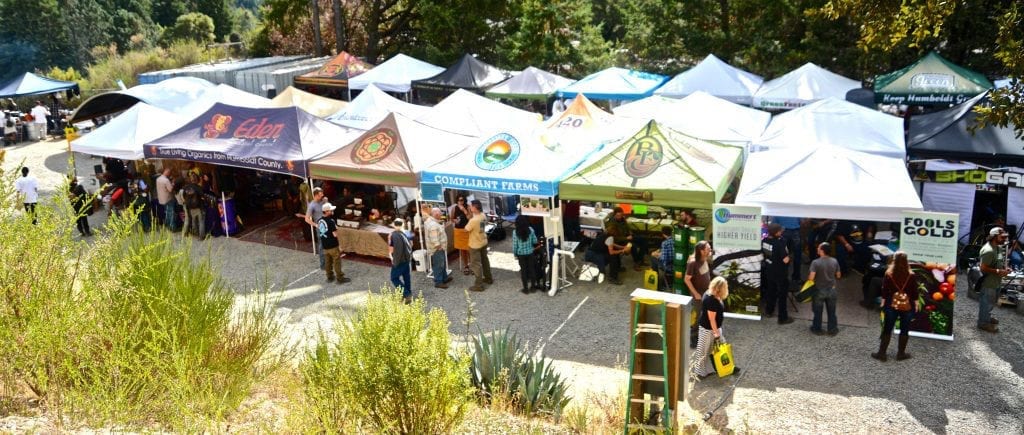
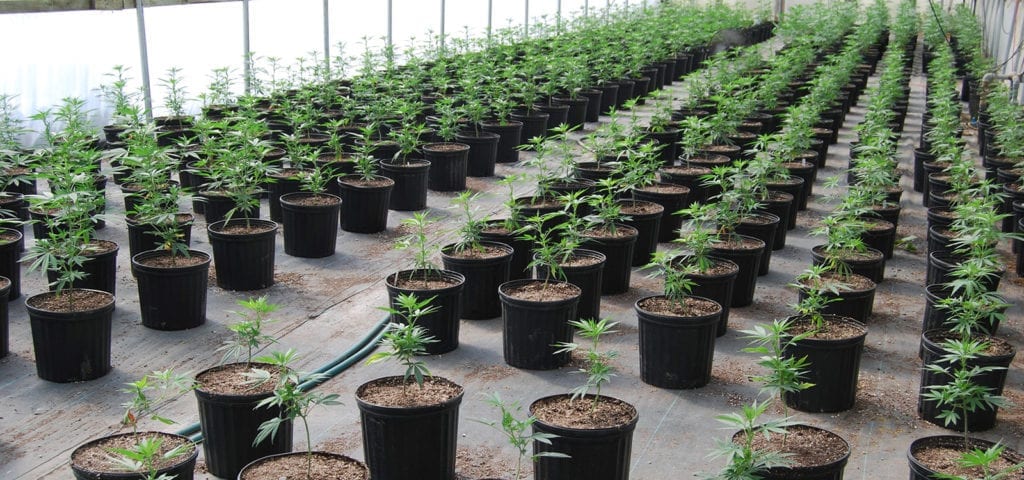


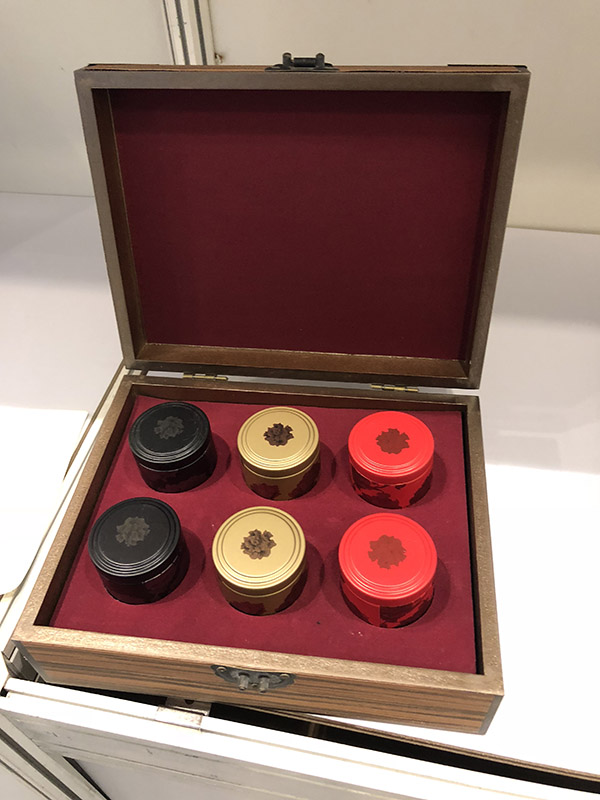



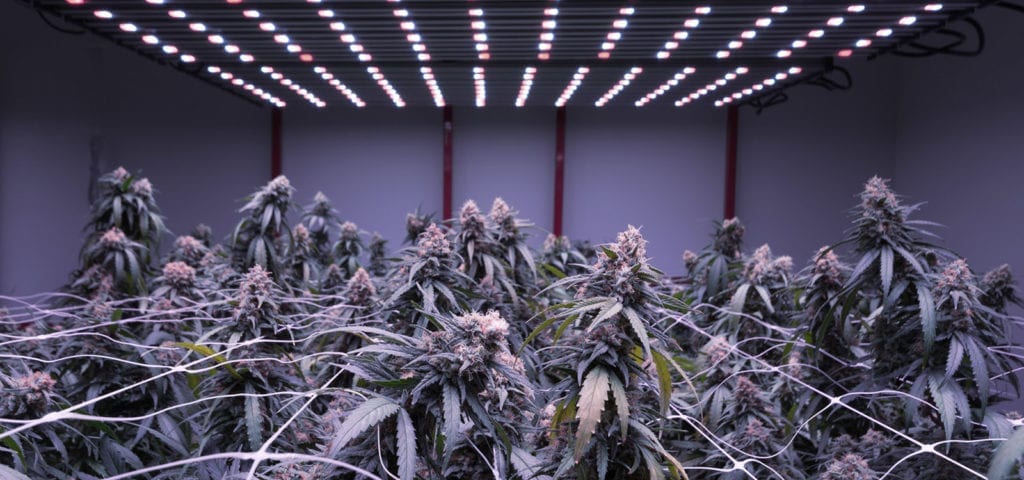






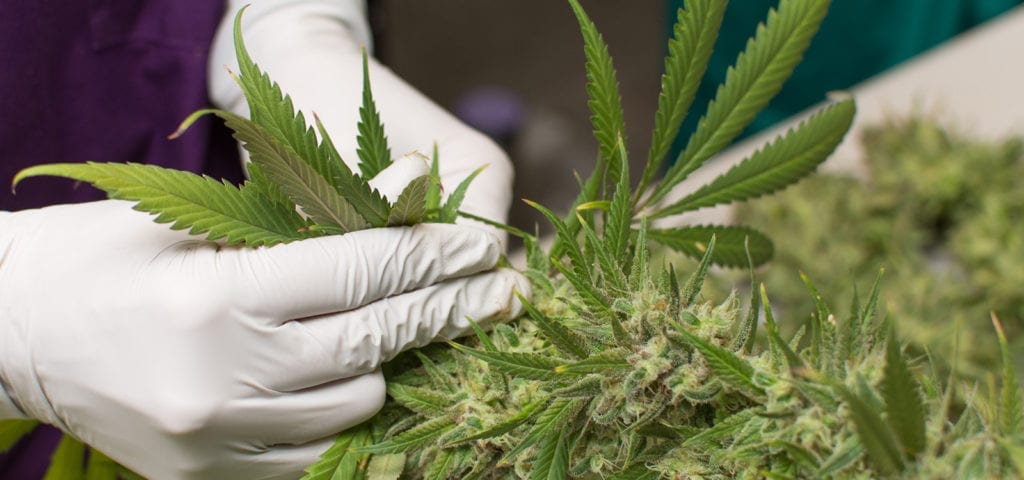
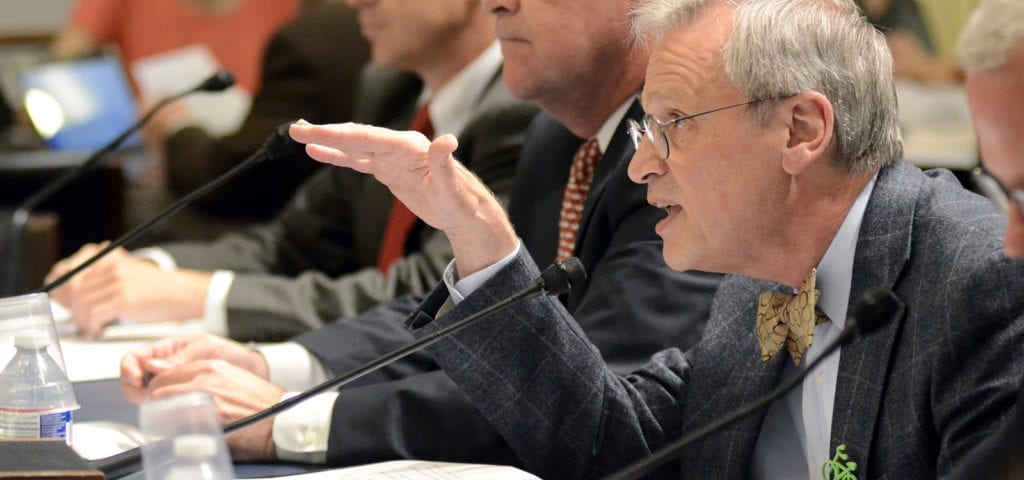
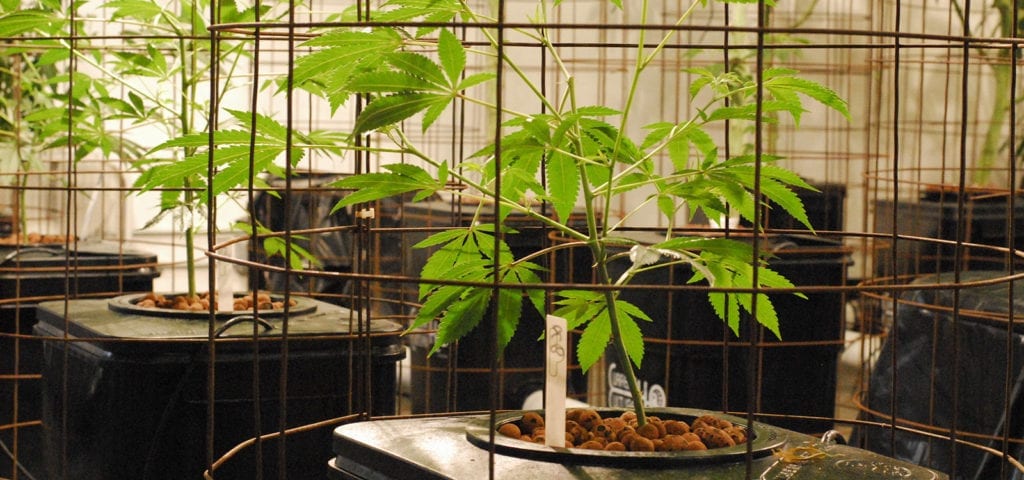

 Cash flow in the cannabis industry is a constant and delicate process — from consumer to retailer, from retailer to processor, from processor to grower, etc. But for every successful transaction, a cautious entrepreneur is also aware of the risks, which can include theft (by customers or employees), the miscounting of cash, or even robbery. To combat these issues,
Cash flow in the cannabis industry is a constant and delicate process — from consumer to retailer, from retailer to processor, from processor to grower, etc. But for every successful transaction, a cautious entrepreneur is also aware of the risks, which can include theft (by customers or employees), the miscounting of cash, or even robbery. To combat these issues, 


